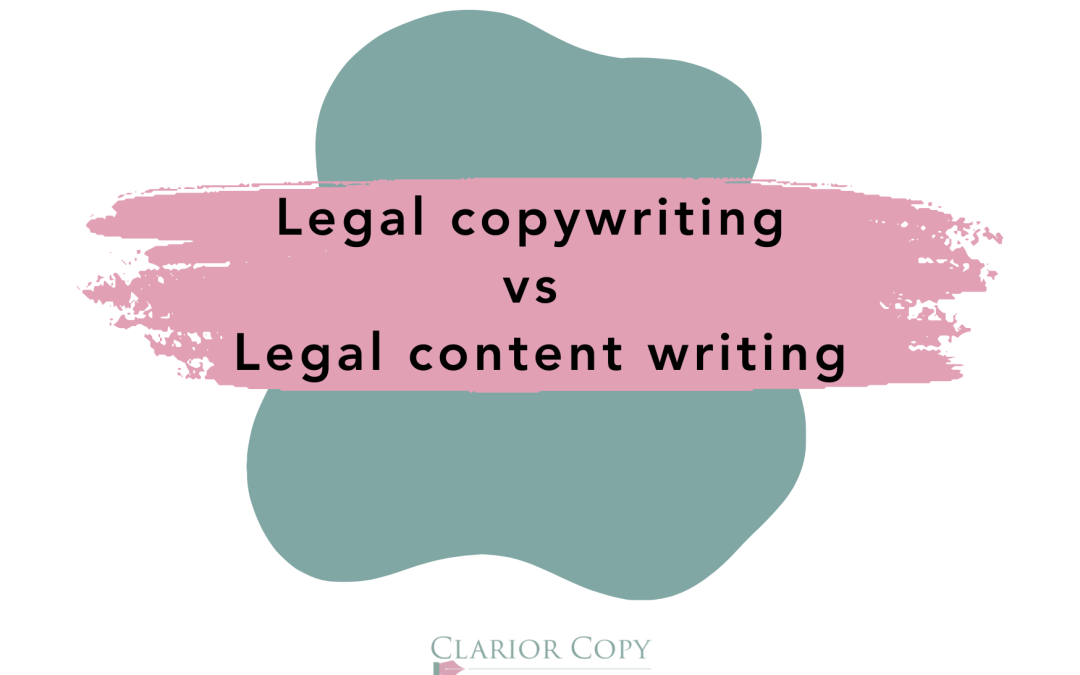As a lawyer, you love a good definition. So let’s clear one thing up: what exactly we mean by legal copywriting and legal content writing.
Legal copywriting persuades and sells
Copywriting is writing that persuades and sells.
Legal copywriting is writing that sells legal services.
So that’s things like:
- Your website: particularly the services pages
- Landing pages: the pages people land on if you’re promoting a particular service or product through a pay-per-click campaign, or a social media campaign
- Brochures: The primary purpose of the marketing material you take to conferences or exhibitions is to sell.
- LinkedIn ‘about’ pages: Can you persuade the curious browser to choose your law firm over somebody else’s?
Now I know what you might be thinking: ‘selling’ is an icky word. It’s not something you want your elegant, professional firm to be associated with.
And that’s entirely true.
That’s why there’s an art to legal copywriting. We don’t just want to write things like “hire us to draft your share purchase agreement because we are innovative trusted advisors” (or some less egregious paraphrase of that).
Copywriting is about speaking to your reader, articulating their pain points, and explaining in very specific ways how you are the right person to fix those problems.
It looks more like this:
“Are you selling your company? If you’ve found a buyer and you’ve agreed on a share sale, you’ll need the right paperwork to make it happen. With an experienced lawyer on your side you’ll get the best deal for you and your business.
Our lawyers will draft your documents, negotiate with the buyer and keep you up-to-date along the way. You can proceed with transaction with peace of mind that you have a legal representative acting in your best interests.”
Legal content writing educates and explains
The purpose of legal content writing is to educate and explain.
It’s your way of building your authority as an expert, creating trust with potential clients and boosting your visibility.
Legal content writing is:
- Articles: technical articles about recent case law, changes to legislation, policy updates or comment on relevant topics issues in the news.
- Blogs: Easy-to-digest tips and pointers that are written in a more conversational tone.
- Case studies: Examples of your recent work, anonymised for confidentiality if required.
- E-books: These could be ‘how-to’ guides, or longer explanations of complex issues.
Most law firms plan to put in place a strategy for content marketing.
But in most cases, it falls by the wayside. There’s always something more appealing or pressing to do, and then you get caught in quiet periods wondering when the next matter will arrive.
The other problem lots of lawyers face is (sorry about this): writing like a lawyer.
There’s a certain way to write pleadings, witness statements and letters to the other side. And you’re great at that!
But writing engaging content takes a slightly different skill-set. It still sounds professional, but the tone, the angle, and the structure of the writing is quite different.
If you’d like help with your content strategy, or writing engaging content on a regular basis, please feel free to get in touch.

